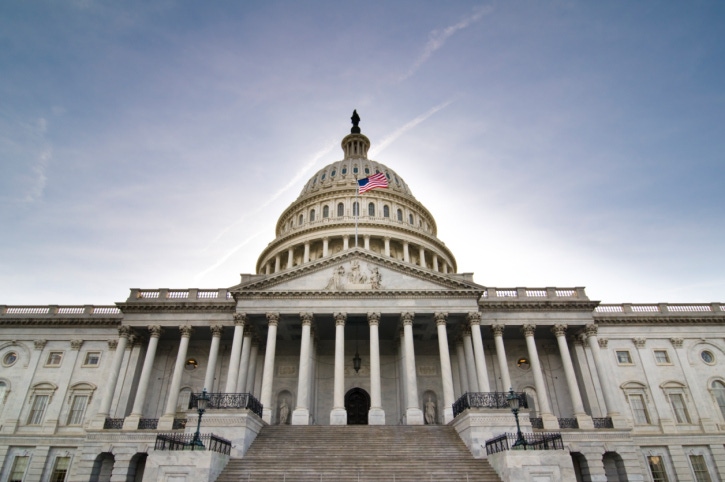Legislative Watch: Biden proposes $6 Trillion budget; USDA budget would increase broadband, research and nutrition funding.

House Agriculture chairman David Scott, D-Ga., is raising objections with the administration's proposal to eliminate stepped-up basis, saying it "cannot be borne by the next generation of farmers taking over the land."
Scott wrote in a letter to President Biden, "Any increase in inheritance tax for those taking over farm land is untenable and will further strain a farm economy that is just now beginning to recover from the strain of the pandemic.”
He continued: "In particular, 'step-up in basis' is a critical tool enabling family farming operations to continue from generation to generation. The potential for capital gains to be imposed on heirs at death of the landowner would impose a significant financial burden on these operations. Additionally, my understanding of the exemptions is that they would just delay the tax liability for those continuing the farming operation until time of sale, which could result in further consolidation in farmland ownership. This would make it more difficult for young, beginning, and socially disadvantaged farmers to get into farming."
Last month, a group of 13 House Democrats representing agricultural districts informed Speaker Nancy Pelosi, D-Calif., and House Democratic leadership that they opposed the stepped-up-basis for capital gains proposal and its potential impact on family farms. They asked that family-owned farms and small businesses be exempted.
Biden proposes $6 Trillion budget
Last Friday, the White House released details for the $6 trillion FY 2022 President's Budget Request (PBR) to Congress. The proposal includes $1.5 trillion in discretionary spending programs ($769 billion for nondefense, a 16% increase over FY '21; $753 billion for defense, a 1.7% increase) for federal agencies in FY '22. Included in the PBR is $2.3 trillion for the proposed American Jobs Plan and $1.8 trillion for the American Families Plan.
The budget indicates how the funding for the proposals will be paid for over 15 years, including:
Raise the corporate income tax rate to 28%
Revise the Global Minimum Tax Regime, disallow deductions attributable to exempt income, and limit inversions
Reform taxation of Foreign Fossil Fuel Income
Repeal the deduction for Foreign-Derived Intangible Income (FDII)
Replace the Base Erosion Anti-Abuse Tax (BEAT) with the Stopping Harmful Inversions and Ending Low-Tax Developments (SHIELD) Rule
Limit foreign tax credits from sales of hybrid entities
Restrict deductions of excessive interest of members of financial reporting groups for disproportionate borrowing in the United States
Impose a 15% minimum tax on book earnings of large corporations
Provide tax incentives for locating jobs and business activity in the United States and remove tax deductions for shipping jobs overseas
Increase the top marginal income tax rate for high earners
Reform the taxation of capital income
Rationalize Net Investment Income and Self-Employment Contributions Act taxes
The budget now moves to Congress for consideration. Republicans have already announced strong opposition to many of the tax proposals.
USDA budget would increase broadband, research and nutrition funding
President Biden's proposed FY '22 budget would increase USDA's discretionary funding to $29.9 billion for research, broadband access, nutrition programs, conservation, rural development, and food safety. This is a 9% increase over FY '21.
Programs highlighted by USDA for increased funding:
Expanded Broadband Access - $700 million for expansion of broadband access through USDA’s ReConnect grant and loan program, an increase of $65 million.
Supports a Strong Nutrition Safety Net - $6.7 billion for the Special Supplemental Nutrition Program for Women, Infants, and Children (WIC) to help vulnerable families, address racial disparities, and combat rising food insecurity.
Combat the Climate Crisis and Conserve Land - $1.5 billion increase for climate smart agriculture, climate resilience, and clean energy.
Invest in Research and Development Capacity for Farmers - $4 billion for USDA's research, education, and outreach programs.
Mandatory programs (commodity programs, crop insurance, various conservation programs, and most nutrition assistance programs) funding is estimated at $168.1 billion. This is a decrease of $20 billion from last fiscal year. This is the result of reduced need for the coronavirus aid programs for producers.
The budget does not propose any cuts in farm programs or the crop insurance program.
Source: P. Scott Shearer, who is solely responsible for the information provided, and wholly owns the information. Informa Business Media and all its subsidiaries are not responsible for any of the content contained in this information asset.
About the Author(s)
You May Also Like



